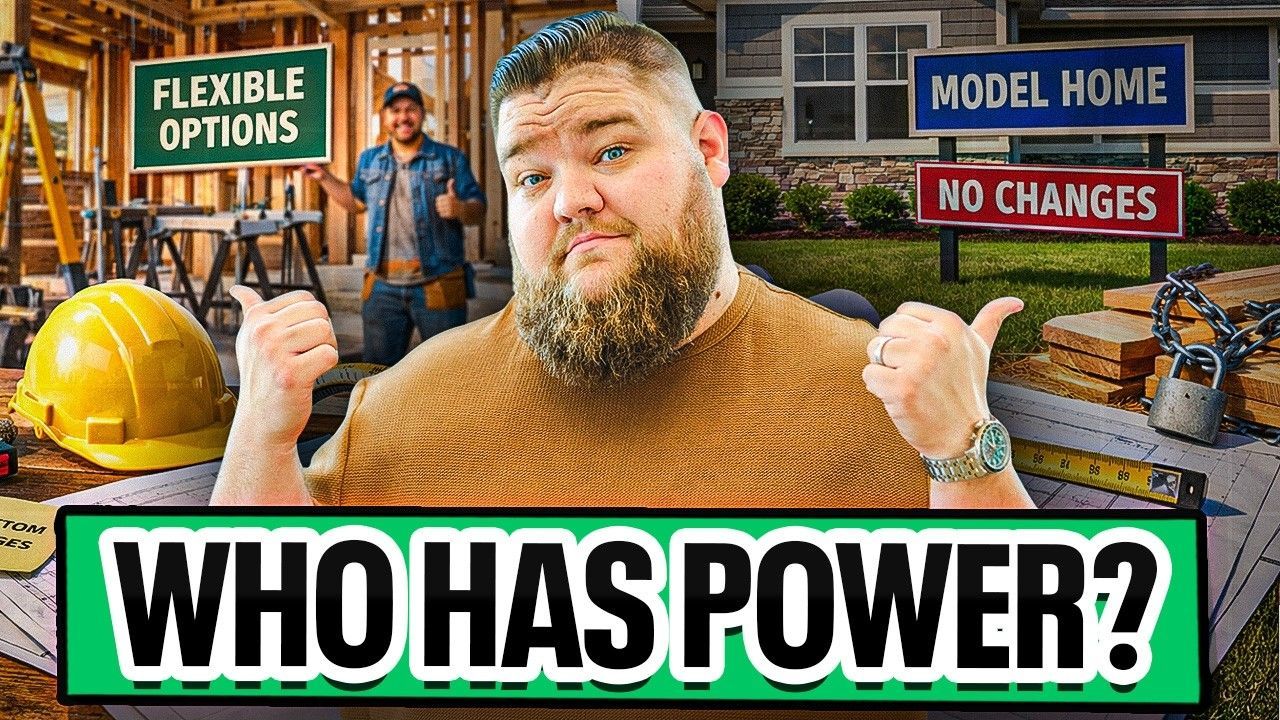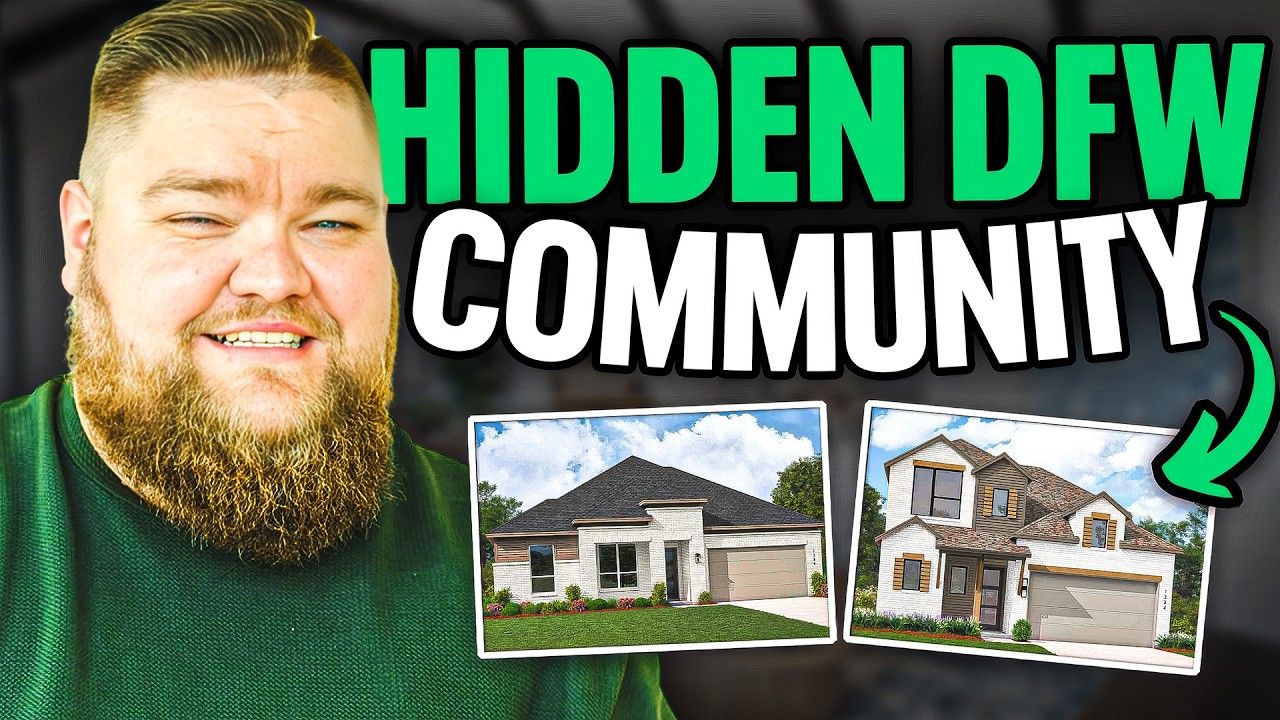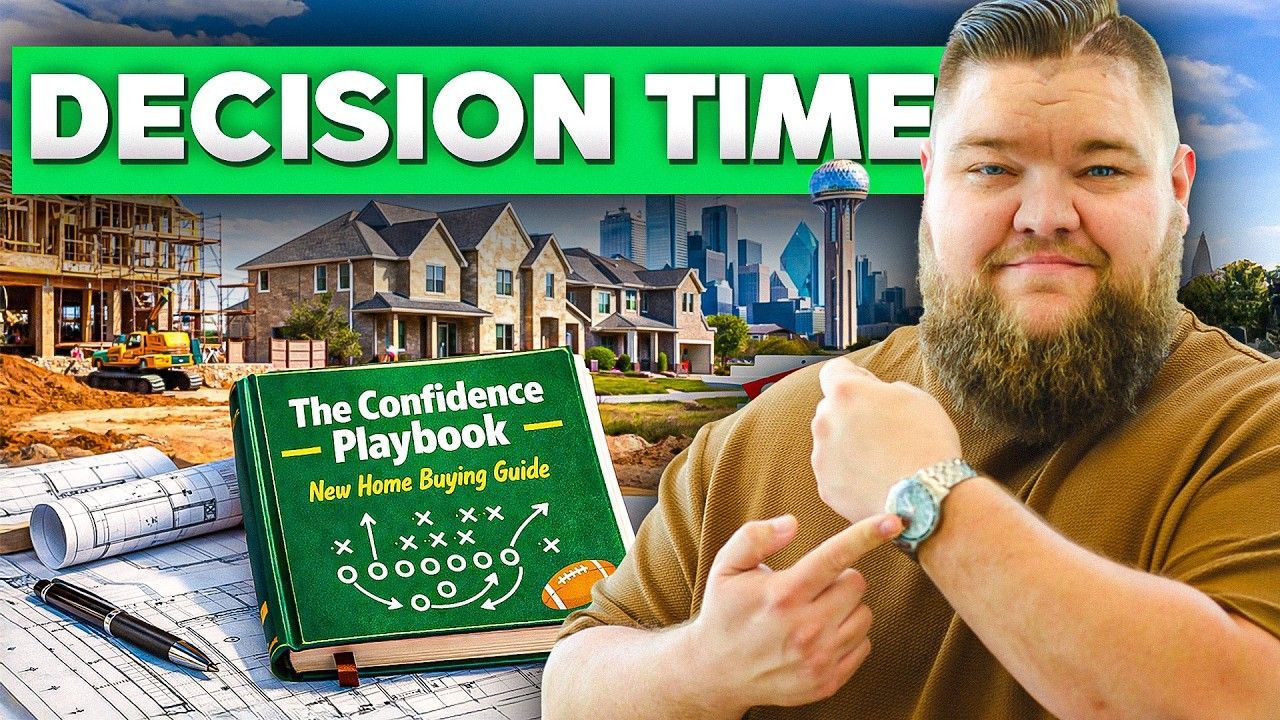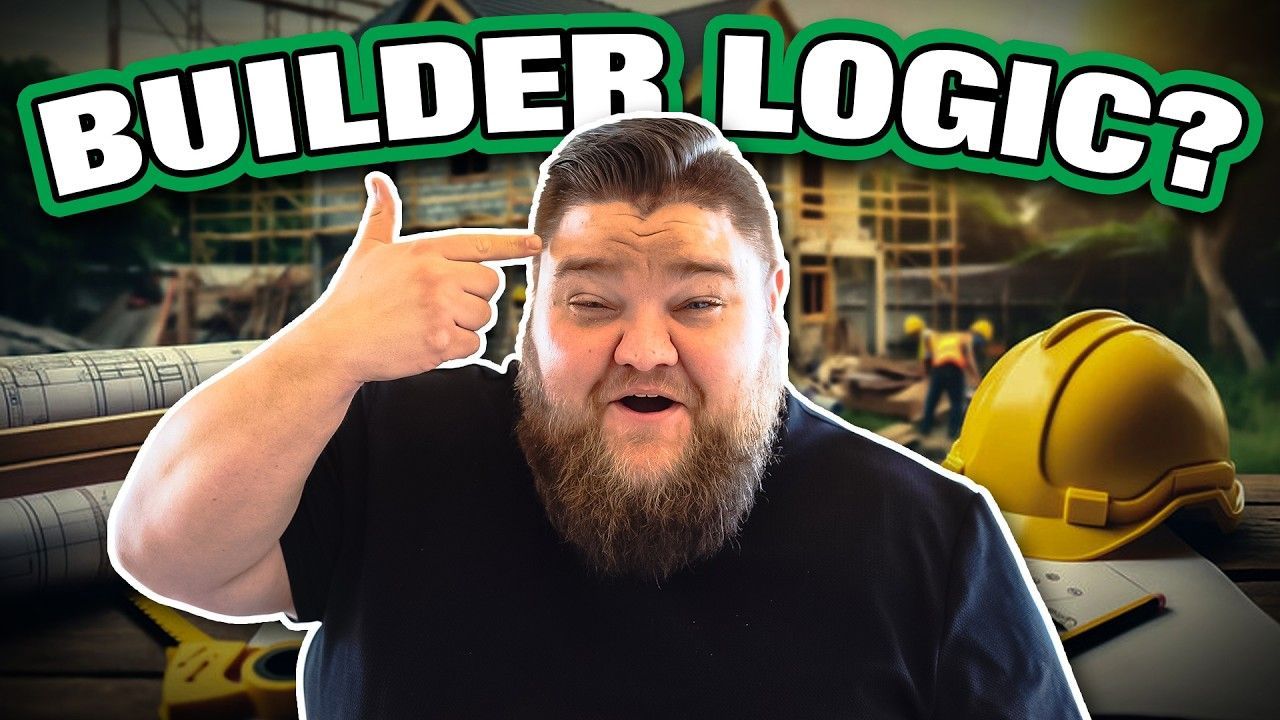DFW Builders Are Dropping Prices: What Buyers Need to Know
One of the most common questions I hear from buyers right now is simple and painful: did I overpay for my new construction homes in DFW? With builders changing incentives, dropping prices, and running creative rate buydowns, it can feel like the market is a circus. The short answer is rarely black and white. The right answer depends on appraisals, incentives, timing, what your family needs, and the long term view you want to take. Below I break down how to think about it, what to watch for, and practical steps you can take to feel confident in your purchase.
Table of Contents
- Why the Pricing Noise Feels Overwhelming
- Ask the Right Question: Did I Get the Right Deal for My Family?
- Appraisals Matter: The Market's Check on Overpayment
- Understand How Builder Incentives Work
- Why Builders Cut Prices or Change Programs
- Will the Builder Renegotiate After They Cut Price?
- Inventory Homes Versus Building From Scratch
- Practical Checklist Before You Sign
- Take the Long View
- When It Makes Sense to Wait
- Final Thoughts
- FAQs on Why DFW Builders Are Dropping Prices
- Want Help Working Through a Specific Offer?
Why the Pricing Noise Feels Overwhelming
The builders are pulling every lever they have right now. They are offering agent bonuses, shifting incentives between closing costs and rate buydowns, raising and lowering list prices, and sometimes removing standard features to protect margins. That behavior looks chaotic because it is. Land costs, material costs, and labor costs keep rising. Interest rates remain stubborn for many buyers. Builders are under pressure to move inventory and protect their business, so they change tactics frequently.
When you see a price cut on one lot and an incentive on another, remember these moves often respond to the builder's pipeline, phase of the neighborhood, or internal needs for capital. There is not always a single rational public explanation. Sometimes it is management-level decision making that looks inconsistent day-to-day.
Ask the Right Question: Did I Get the Right Deal for My Family?
Instead of focusing only on the headline price, start by asking: does this house fit our needs? Does it fit our monthly budget? Does it check the boxes for commute, schools, and lifestyle? Buying a home is not day trading. You are not trying to time a flip. You are selecting the place where your life will happen. That perspective changes the conversation.
Too many buyers fixate on whether someone down the street got a lower list price. The real questions are: what incentives did they accept, how much did the builder spend to buy down the rate, were closing costs included, and what standard features were kept or removed from each home?
Appraisals Matter: The Market's Check on Overpayment
If the lender funded the loan and the home appraised, the market — through the bank's lens — has validated the value. That does not eliminate the buyer's feelings about pricing, but it does mean you did not overpay according to the appraisal-based market value used by the lender. In short, appraisal approval is a strong check against the idea that you overpaid.
One real example to illustrate this: we had a deal where the contract price was substantially below the appraisal — roughly seventy thousand dollars lower. The lender still funded the loan, and the buyer walked into a home with appraisal cushion plus incentives. That is a clear win even though they might see price shifts in that community later.
Understand How Builder Incentives Work
Builders can move cash and numbers around to make a deal look attractive. Here are the most common forms and what they mean to you:
- Rate buydown. Builders will fund payments or points to lower your effective mortgage rate for a set period or permanently. That has a real dollar cost for them, and it changes the economics of a sale.
- Closing cost contributions. These reduce your out-of-pocket closing expenses but do not lower the purchase price.
- Appliance packages, blinds, landscaping, or upgrades. These are value add-ons that can be more meaningful than a small list price reduction.
- Agent bonuses. Paid to sell the home faster, but they do not change what you pay at closing.
When comparing offers or past deals, add up the real value: how much did the builder spend to buy down the rate, what did they cover at closing, and what extras were included? Looking only at list price misses most of the deal structure.
Why Builders Cut Prices or Change Programs
There are many reasons builders slash pricing or change incentives. Some of the most common include:
- Holding costs on long-standing inventory. The longer an inventory unit sits, the more they may discount to free up capital.
- Returned inventory due to canceled contracts or buyers who could not close.
- Capital needs to start new projects or buy land.
- Pressure from shareholders to show healthy sales numbers.
- Phase protection. Early phases might avoid discounts to protect prior buyers; later phases may need to move product more aggressively.
Sometimes their moves make little sense to agents who are on the ground. Sales reps are often following corporate instructions. That leaves buyers confused when a property that was not negotiable one week becomes negotiable the next. There is a gamble in waiting because another buyer may take the property if you pause.
Will the Builder Renegotiate After They Cut Price?
Maybe. It depends on the builder. Some will reopen negotiations if your contract has not closed and they adjust community pricing. Others will say the deal you had is what you got and leave it alone. They may view re-cutting deals as unfair to buyers who accepted earlier pricing.
Always ask. If the build has not closed and prices shift, bring it up with your sales rep and your agent. You never know until you ask. But prepare for both outcomes: the builder changes your terms or they hold firm. Your agent should be your advocate and provide the perspective to decide whether to push or move on.
Inventory Homes Versus Building From Scratch
Right now inventory homes often deliver the best value. Why? Builders are offering bigger incentives on homes they can close quickly, and appraisal outcomes can be favorable. Inventory homes also remove the uncertainty and time associated with waiting for construction to finish.
If you want a "screaming deal" and quick possession, inventory is often your best path. If you want to customize and build from the ground up, you accept longer timelines and a different negotiation posture.
Practical Checklist Before You Sign
Use this checklist to determine whether the offer in front of you is a good one for your situation:
- Confirm the appraisal result and ask for the comps used.
- Calculate total incentive value. Convert a rate buydown into monthly payment savings over the term you care about.
- Verify which standard features are included and get them in writing.
- Understand what is closing cost versus purchase price reduction.
- Ask whether the builder will consider post-contract adjustments if community pricing changes before closing.
- Assess location, schools, commute, and long-term lifestyle fit.
- Decide if you need to move now due to job, family, or lease constraints. Timing matters.
FIND YOUR PERFECT NEW CONSTRUCTION HOME IN DFW
Take the Long View
Buying new construction homes in DFW should not be treated like a short-term trade. It is a place for daily life, for raising kids, for building memories. Incentives, pricing, and standard features will shift over time. If your mortgage fits your budget and the appraisal supports the value, you likely made a reasonable decision.
Keep your equity in mind and avoid letting fear about future price reductions override the practical benefits of a home that fits your family. In many cases, the best buyers are the ones who focus less on being the absolute cheapest purchase and more on total value and long-term satisfaction.
When It Makes Sense to Wait
Waiting can make sense if you have flexibility and believe market conditions will improve. However, waiting is a gamble. If you delay because you see a price drop somewhere else, another buyer may snap up the exact home you wanted. Also remember that interest rates and financing options change daily and can erase any theoretical savings from a lower list price.
If you must move for a job, school, or lease deadline, then waiting may not be an option. That is why fit for your family and appraisal validation should weigh heavily in the decision.
Final Thoughts
New construction homes in DFW sit at the intersection of builder math and human needs. Builders are reacting to costs, interest rate pressure, and pipeline demands. Buyers are reacting to life events and budgets. The best way to reduce buyer anxiety is to focus on what you can control: confirm appraisal outcomes, understand the full incentive package, evaluate the home for fit and quality, and work with an agent who understands builder dynamics.
There are deals to be found. Inventory homes are particularly attractive in the current market for buyers who need quick moves and strong incentives. But always prioritize the home and terms that make the most sense for your family and your long-term plans.
FAQs on Why DFW Builders Are Dropping Prices
If the builder cuts prices after I close, did I overpay?
If the home appraised and the lender funded the loan at your contract price, you did not overpay in the eyes of the market used by lenders. Emotionally you might feel like you missed out, but appraisal validation is a key objective indicator. Keep in mind incentives and upgrades vary between buyers, so comparisons are rarely apples to apples.
Will builders renegotiate if they drop prices after I sign but before I close?
Maybe. Some builders will adjust contract terms within reason. Others will decline to renegotiate citing fairness to earlier buyers. Always ask through your agent. If the builder refuses, you can evaluate whether staying in the contract is still the best move for your needs.
How do rate buydowns change what I should pay attention to?
Rate buydowns can dramatically improve monthly payments. When a builder funds a buydown, calculate the dollar value: how much are they spending and how does that lower your monthly payment for the period that matters to you? Sometimes a smaller list price reduction plus a buydown is better than a larger price cut without payment relief.
Are appraisals reliable when the market is shifting?
Appraisals are a snapshot based on recent comparable sales. They are not perfect, but they are a standardized tool lenders use to validate value. If the home appraised and your lender funded the mortgage, that is a strong validation. Still, always review the comps used so you understand what market data supported the appraisal.
Should I wait to buy in case prices drop more?
Only if you can afford to wait and are willing to accept the risk that the home you want could be sold to someone else. Waiting can make sense if you are not under time pressure and you believe market conditions will improve. If you need to move for life reasons, prioritize fit, budget, and appraisal validation over chasing the lowest possible price.
Want Help Working Through a Specific Offer?
If you are looking at a new construction homes in DFW and want help evaluating incentives, appraisals, and whether the offer fits your family, reach out to me at 469-707-9077 to schedule a time to review the particulars. The right perspective and a careful calculation of total value will help you decide with confidence. Comments and questions are welcome — I appreciate the conversation and enjoy helping buyers find smart, long-term solutions.

Zak Schmidt
From in-depth property tours and builder reviews to practical how-to guides and community insights, I make navigating the real estate process easy and enjoyable.













